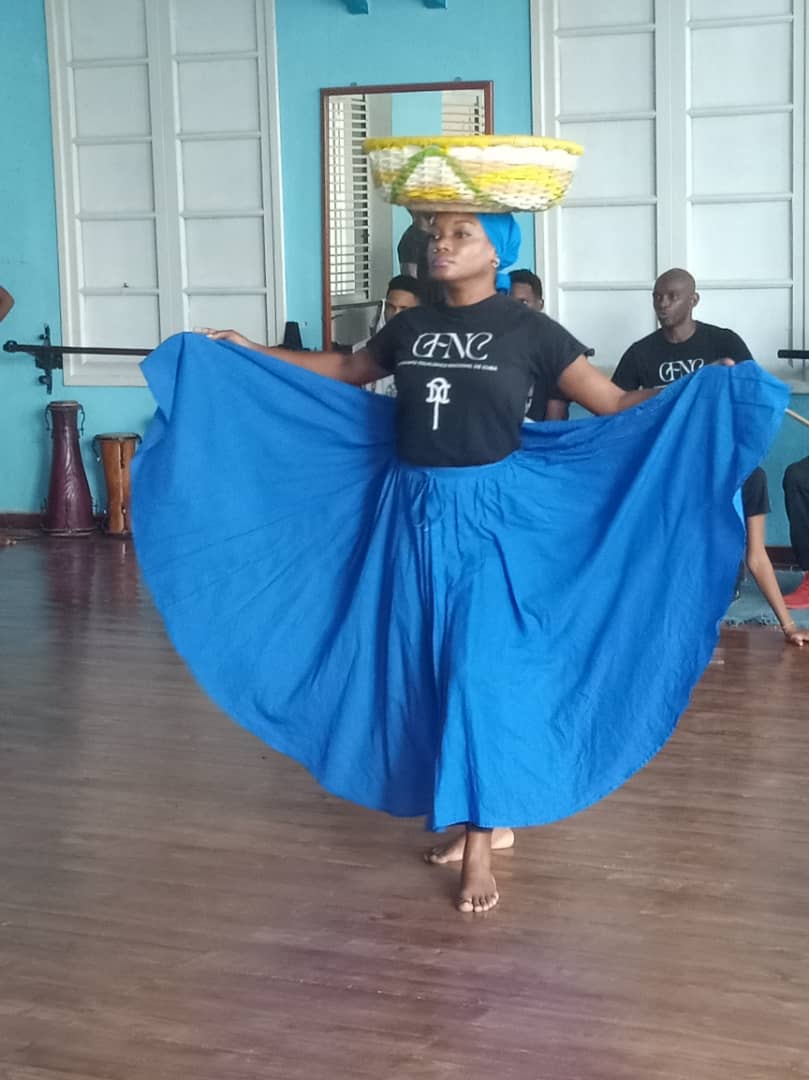Conjunto Folclorico Nacional de Cuba (CFNC) presented its season " Al ritmo de la herencia" (To the rhythm of the cultural heritage) at the National Theater from October 17 to 26.
The program organized by this Dance company, which was created 60 years ago, includes some part of the known piece called " Comunidad" (Community), that was the result of a research process within the Dance company and it takes into account the main repertoire of the company and the different creative processes that have been emerged within it.
The piece includes dances, rhythms, and songs of Bantu origin. With this piece, the prestigious Dance company pays homage to the generation of artists who starred in the Congo Cycle (1963), the Company's first musical-dance performance, dedicated to Bantu culture and their arrival in Cuba. It recreates the experiences lived by enslaved Africans in Cuba in the mid-19th century, a time when the country was under Spanish rule.
Historically, many of the Company’s performances include dance passages from the Congos, whose reference was marked by previous generations who bequeathed great choreographies that endure in the memory and repertoire of the Company.
Also part of the program was the world premiere of Arará: Ecos de Dahomey, a work conceived to pay homage to Lázaro Ros, the most important figure in Cuban folk singing for his mastery of those Cuban songs of African origin. He is also founder of this company.
The work was inspired by the dances and rituals that were brought from the ancient kingdom of Dahomey, now Benin, and it evoked the resilience, spirituality and vibrant energy of the Arará people through the performance of dances, drumming and songs that dedicated to two of the most important deities of that culture: Gebioso and Afrekete.
The bodies on stage give life to the gods, to the spirits of the ancestors and to the stories of those who, despite their uprooting, kept their identity alive through dance and drumming.
As an added value to the dance, vocal and musical skills demonstrated by the members of this company, the use of musical instruments for this culture stands out.
It is worth highlighting the contribution of the singer Akemi Terán, who has been a member of the company for more than two decades, who shares her family experiences (as a descendant of Arará culture practitioners), expressed in the songs and drummings brought to the stage on this occasion.


Deje un comentario